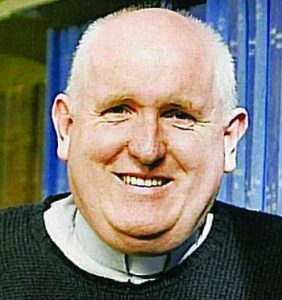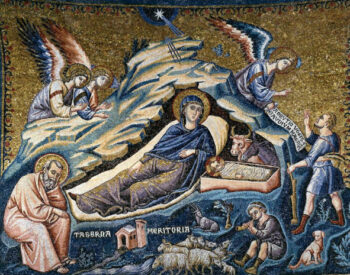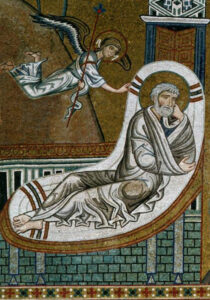March Saint

By Fr Merv Duffy SM
Joseph the Dreamer
On 19 March the Church celebrates the Solemnity of Saint Joseph, husband of the Blessed Virgin Mary. In the extraordinary group of individuals who constitute the Holy Family he is the most ‘normal.’ His foster-son is the Son of God, fully divine and fully human. His wife is the God-bearer, the blessed Virgin. Next to such luminaries, Joseph is almost lost in their brilliance. In many pictures of the Nativity, Mary is shown centre-stage adoring the Christ-child while Joseph is in the corner, hunched over, looking away or even asleep.
In our age, with its emphasis on the humanity of Je sus and his historical life, Joseph has received more attention. Perhaps our experience of reconstituted families means that we have a greater appreciation of the importance of foster-fathers.
On 8 December 1870, Pope Pius IX declared St Joseph a patron of the Universal Church. On the 150th anniversary of that, in 2020, Pope Francis issued an apostolic Letter about St Joseph called Patris Corde (With a Father’s Heart) and he declared 2021 to be the ‘Year of Saint Joseph.’ Pope John XXIII had added Joseph’s name to the first Eucharistic Prayer in 1962 and Popes Benedict and Francis added it to the Eucharistic Prayers II, III and IV.
Matthew’s Gospel is the one that gives most prominence to Joseph. It recounts four dreams that he had which resulted in the Holy Family first going to and then returning from Egypt.
There is an obvious parallel with Joseph’s namesake in the Old Testament, the son of Jacob, who is sold into slavery in Egypt. That Joseph, too, was a dreamer, and able to interpret dreams. His interpretation of fat cows and thin cows enabled Egypt to escape famine and led to his rising to prominence.

The Nativity in mosaic in the church of Santa Maria in Trastevere, Rome, about 1300 AD. The artist, Pietro Cavallini, links Joseph visually with the sheepdog in the other corner.
Matthew describes Joseph as a ‘righteous’ man, suggesting that he respects the Jewish Law and tried to live according to it. We refer to Joseph as a ‘carpenter,’ but the word used, tekton, is a bit more general than our English term, meaning an artisan with wood, or an artisan in iron or stone. We get the words ‘technical’ and ‘technology’ from the same Greek word.
Saint Joseph is famous for his silence in the scriptures. We have no direct speech attributed to him in any of the gospel texts. Perhaps he didn’t say much. He dreams and then he acts.
Christian legend, and the art that follows it, has depicted Joseph as much older than Mary, which would explain Joseph not being at the crucifixion and how he could have already had other children. (Matthew 13:55: “Isn’t this the carpenter’s son? Isn’t his mother named Mary? And aren’t his brothers James, Joseph, Simon, and Judas?”) He may have been a younger and more vital presence in the life of Jesus than he has been portrayed. Because Joseph is presumed to have died accompanied by Mary and Jesus, he is the patron saint of a happy death. If you want to die well, invoke Joseph.

“An angel of the Lord appeared to him in a dream” – Matthew 1:20. Mosaic c. 1150 AD, Capella Palatina, Sicily
To conclude, a prayer from Pope Francis, from a homily on St Joseph (20 March 2017):
Dear Saint Joseph grant all of us the ability to dream, because when we dream great things, good things, we draw near to God’s dream, what God dreams about us.
 Entries(RSS)
Entries(RSS)